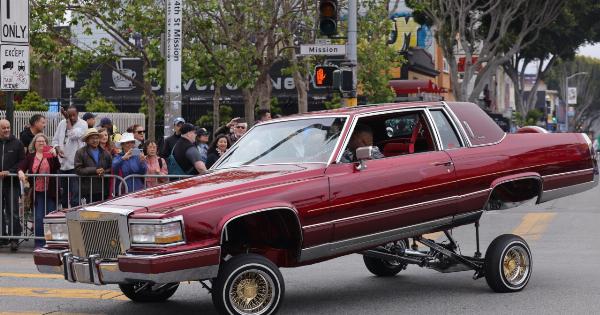Macular degeneration is a common eye condition that affects the central part of the retina, known as the macula, leading to vision loss. It is the leading cause of vision loss among individuals over the age of 50.
This article will discuss the symptoms, causes, and available treatment options for macular degeneration.
Symptoms of Macular Degeneration
The early stages of macular degeneration may not cause any noticeable symptoms. However, as the condition progresses, individuals may experience the following:.
- Blurry or distorted central vision
- Difficulty reading or recognizing faces
- Decreased brightness or intensity of colors
- A dark or empty area in the center of vision
- Deteriorating ability to adapt to low light levels
If you notice any of these symptoms, it is important to schedule an appointment with an eye specialist for a comprehensive examination.
Causes of Macular Degeneration
The exact cause of macular degeneration is unknown, but several risk factors have been identified. These include:.
- Age: The risk of developing macular degeneration increases with age, particularly after the age of 50.
- Family History: Having a family member with macular degeneration increases the risk of developing the condition.
- Smoking: Smoking tobacco significantly increases the risk of developing macular degeneration.
- Obesity: Being overweight or obese has been associated with an increased risk of macular degeneration.
- Race: Macular degeneration is more common in Caucasians compared to other racial groups.
- Cardiovascular Disease: Conditions such as high blood pressure, heart disease, and high cholesterol may increase the risk of macular degeneration.
While these factors increase the likelihood of developing macular degeneration, they do not guarantee that an individual will develop the condition.
The interplay between these factors and genetic predisposition contributes to the development of macular degeneration.
Types of Macular Degeneration
Macular degeneration can be classified into two main types: dry and wet macular degeneration.
Dry Macular Degeneration
Dry macular degeneration, also known as atrophic macular degeneration, is the more common form of the condition. It is characterized by the presence of yellow deposits called drusen beneath the macula.
Over time, the macula thins and deteriorates, leading to gradual central vision loss. Dry macular degeneration progresses slowly and is generally less severe than the wet form.
Wet Macular Degeneration
Wet macular degeneration, also known as neovascular macular degeneration, is less common but more aggressive. It occurs when abnormal blood vessels grow beneath the macula and leak fluid and blood, leading to rapid and severe central vision loss.
If left untreated, wet macular degeneration can cause permanent damage to the macula and result in irreversible vision loss.
Treatment Options for Macular Degeneration
While there is no cure for macular degeneration, several treatment options can help slow down the progression of the disease and manage its symptoms:.
1. Lifestyle Modifications
Adopting a healthy lifestyle can help reduce the risk of developing macular degeneration and slow down its progression. This includes:.
- Quitting smoking
- Eating a nutritious diet rich in fruits, vegetables, and omega-3 fatty acids
- Exercising regularly
- Maintaining a healthy weight
- Protecting the eyes from ultraviolet (UV) radiation by wearing sunglasses
2. Antioxidant Supplements
Some studies suggest that certain antioxidant vitamins and minerals, such as vitamins C and E, zinc, and copper, may help slow down the progression of macular degeneration.
3. Anti-VEGF Injections
Wet macular degeneration can be treated with anti-vascular endothelial growth factor (anti-VEGF) injections. These medications help reduce the growth of abnormal blood vessels and prevent further leakage of fluid and blood into the macula.
Regular injections are required to maintain the effect of the treatment.
4. Photodynamic Therapy
Photodynamic therapy involves using a photosensitizing drug that is activated by a laser to target and destroy the abnormal blood vessels in wet macular degeneration. This treatment option is less commonly used but may be recommended in certain cases.
5. Low Vision Rehabilitation
For individuals with significant vision loss, low vision rehabilitation can be helpful in maximizing the use of remaining vision.
This may involve the use of magnifiers, telescopic lenses, and other assistive devices, as well as training in adaptive skills.
Conclusion
Macular degeneration is a common eye condition that can cause significant vision loss, particularly in older individuals.
It is important to be aware of the symptoms and risk factors associated with macular degeneration, as early detection and intervention can help slow down the progression of the disease. Regular eye examinations and adopting a healthy lifestyle are key in reducing the risk and managing macular degeneration.
If you experience any symptoms of macular degeneration, it is crucial to seek professional medical advice to determine the appropriate course of treatment.


























